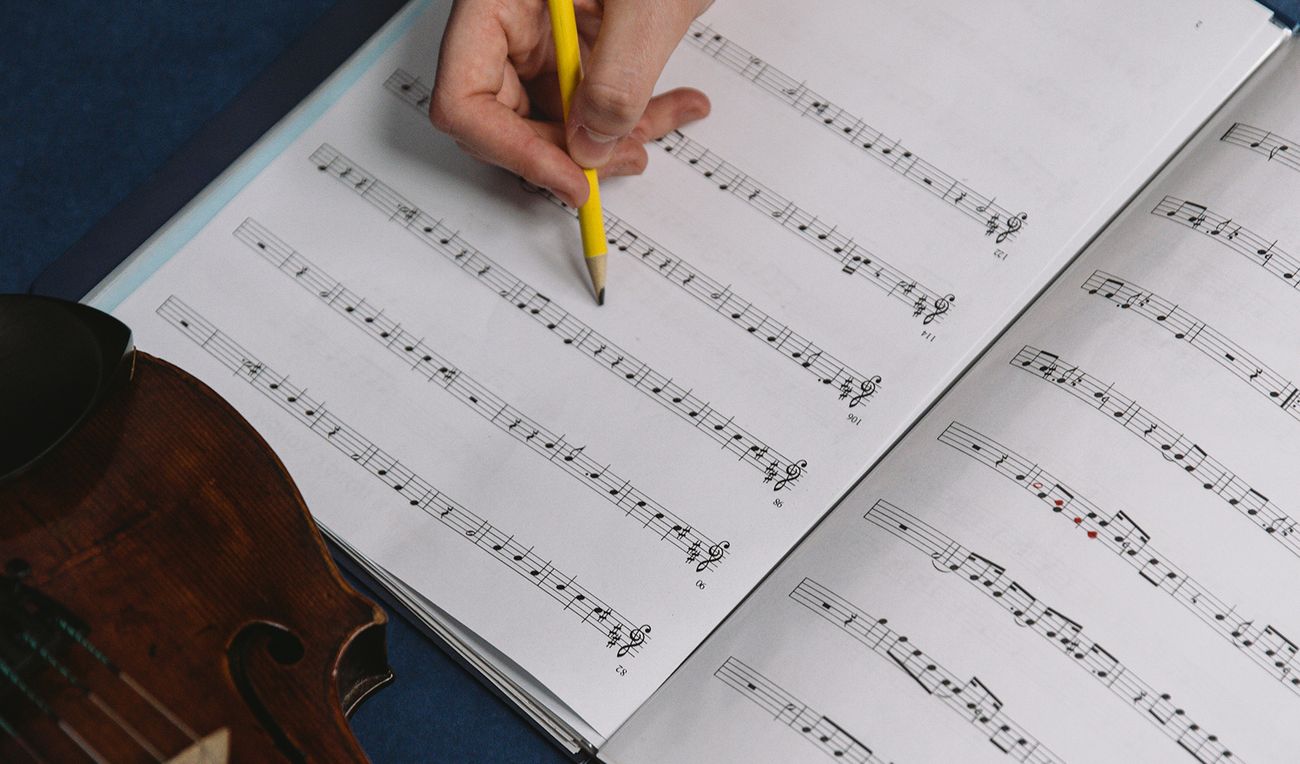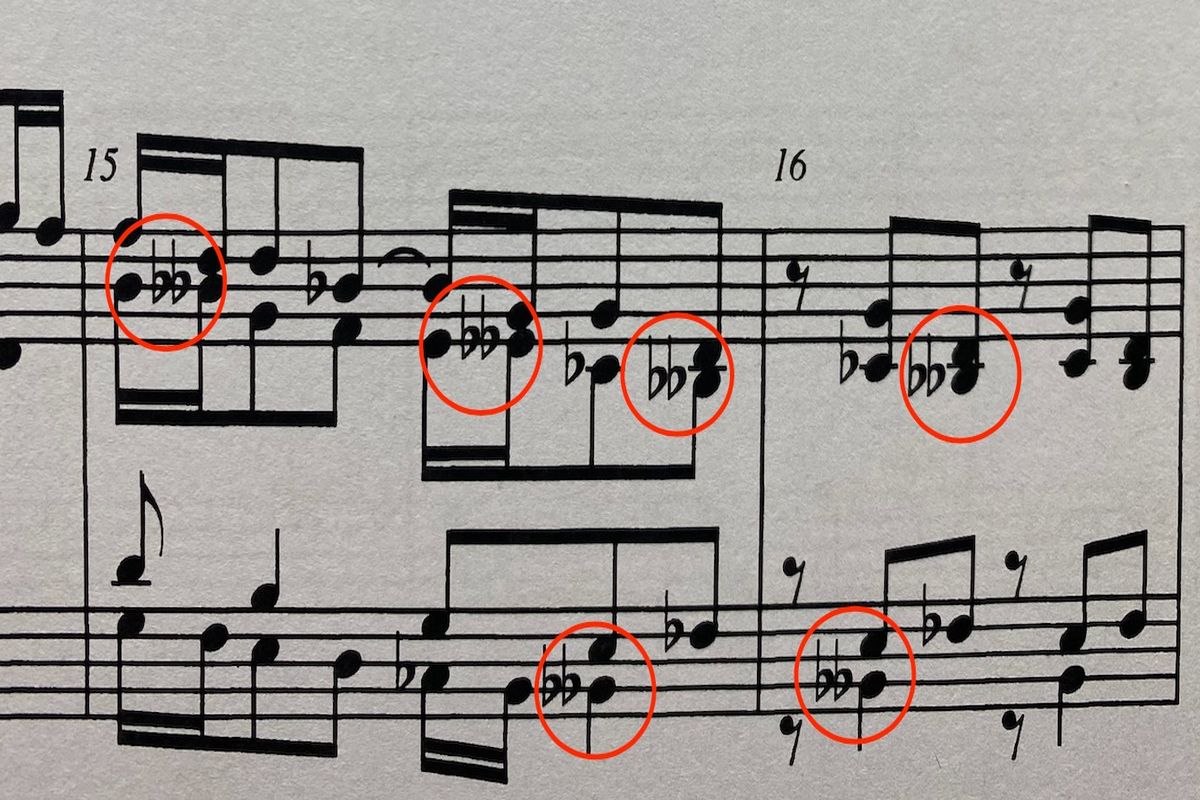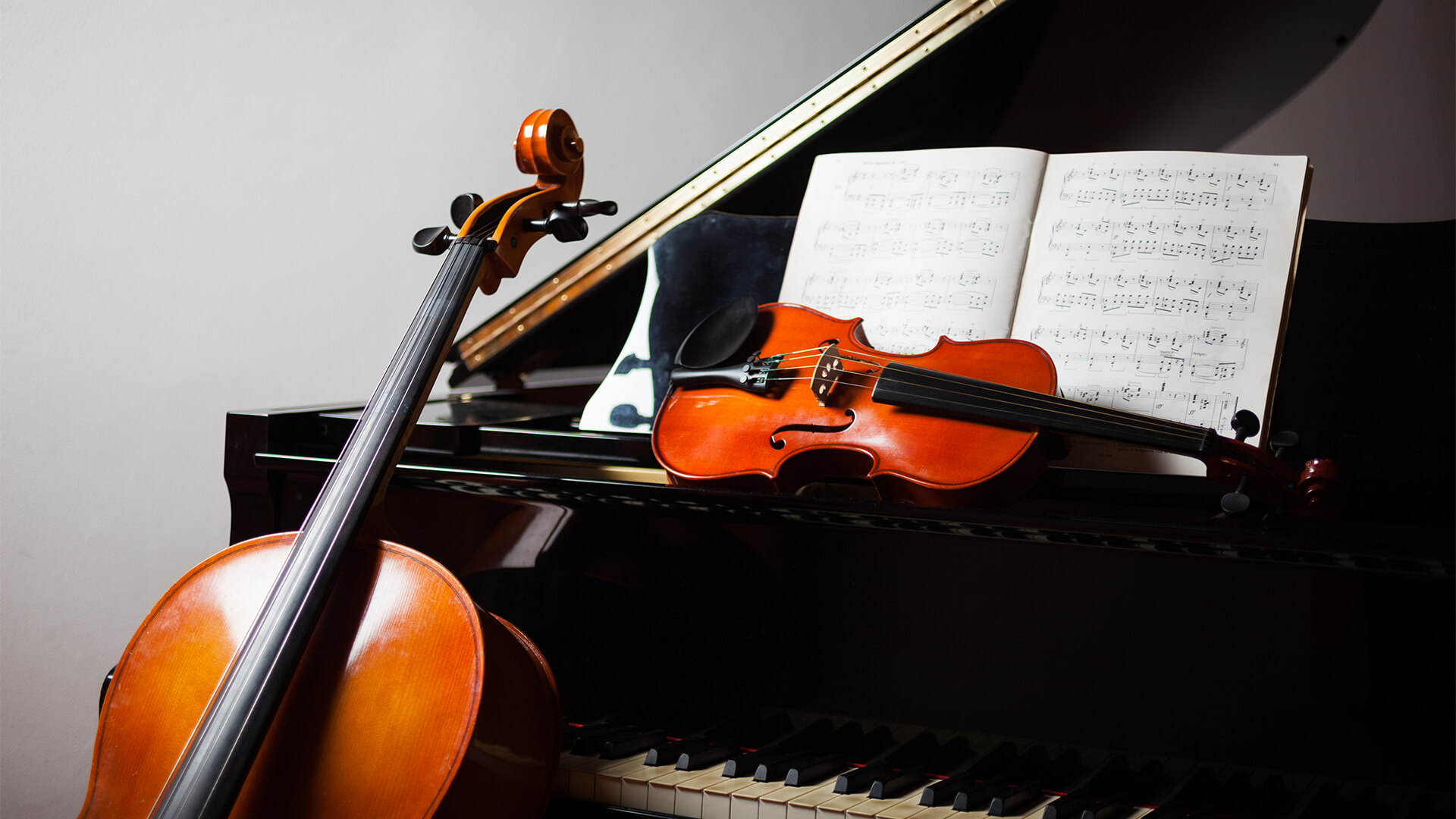Home>Production & Technology>Music Theory>When Is The AP Music Theory Exam


Music Theory
When Is The AP Music Theory Exam
Published: January 31, 2024
Get all the information you need about the AP Music Theory Exam, including dates, preparation tips, and study resources. Prepare to ace the Music Theory exam!
(Many of the links in this article redirect to a specific reviewed product. Your purchase of these products through affiliate links helps to generate commission for AudioLover.com, at no extra cost. Learn more)
Table of Contents
Introduction
Welcome to the world of AP Music Theory! If you have a passion for music and want to demonstrate your knowledge and understanding of music theory, then the AP Music Theory Exam is the perfect opportunity to showcase your skills. Whether you are a high school student looking to earn college credits or simply a music enthusiast wanting to challenge yourself, this exam offers a comprehensive assessment of your music theory knowledge.
In this article, we will dive into the details of the AP Music Theory Exam, including the exam date and time, format, content, and how to prepare for it. By the end, you will have a solid understanding of what to expect and how to approach this exciting musical journey.
The AP Music Theory Exam is administered by the College Board, the same organization that administers the SAT and AP exams. It is designed to assess your understanding of the fundamentals of music theory, including pitch and rhythm, harmony and tonality, musical form and structure, and ear training. The exam is a combination of multiple-choice questions, free-response questions, and aural skills.
The content of the exam is based on the content covered in a typical introductory college-level music theory course. It covers a wide range of topics, from basic notation and terminology to advanced harmonic analysis and composition techniques. The exam is divided into two sections: Section I focuses on multiple-choice questions, while Section II consists of free-response questions.
Overview of AP Music Theory Exam
The AP Music Theory Exam is a comprehensive assessment of your knowledge and understanding of music theory. It is an opportunity to showcase your skills in areas such as sight singing, melodic dictation, harmonic analysis, and musical composition. This exam is widely recognized and can potentially earn you college credits or advanced placement in music-related courses.
The exam is divided into two sections: Section I and Section II. Section I consists of multiple-choice questions, while Section II is made up of free-response questions.
In Section I, you will be presented with a series of multiple-choice questions that test your understanding of fundamental music theory concepts. These questions may ask you to identify intervals, chord progressions, scales, and key signatures. Additionally, you may encounter questions that require you to analyze musical excerpts and identify harmonic progressions or cadences.
Section II of the exam focuses on free-response questions that require a more in-depth understanding of music theory. This section includes sight singing exercises, melodic dictation, harmonic analysis, and music composition. You may be asked to notate a melody by ear, analyze a given musical passage for its harmonic structure, or compose a short musical piece following specific guidelines.
Throughout the exam, you will also be required to demonstrate your aural skills. This includes the ability to recognize and identify pitch, rhythm, and musical elements by ear. Aural skills are essential in music theory and contribute to your overall understanding and interpretation of music.
It is important to note that the exam is scored out of 100, with both the multiple-choice and free-response sections contributing to the overall score. Each section has its own weight in the final score calculation.
Now that we have an overview of the exam format, let’s dive into the specifics of the exam date and time.
Exam Date and Time
The AP Music Theory Exam is typically administered in May each year. The specific date and time of the exam can vary slightly from year to year, so it’s important to stay updated with the latest information from the College Board, the organization responsible for administering the AP exams.
The exam is usually scheduled for a weekday morning, with a standardized start time across all participating schools. It is important to arrive early on the day of the exam to ensure a smooth check-in process and to alleviate any potential stress or anxiety.
To find the exact date and time of the AP Music Theory Exam for the current year, you can refer to the College Board’s website or consult your school’s AP coordinator. The College Board typically releases the exam schedule several months in advance, allowing you to plan and prepare accordingly.
While the exam date and time are predetermined, it is crucial to mark it on your calendar and make necessary arrangements to ensure you are available and prepared on the day of the exam. Adequate preparation, including studying the necessary content and practicing aural skills, is key to performing well and achieving your desired score.
It is recommended to create a study schedule leading up to the exam to allocate dedicated time for review and practice. This can help you manage your time effectively and ensure that you cover all the necessary topics and skills before the exam date.
Now that we have a clear understanding of the exam date and time, let’s move on to explore the format and content of the AP Music Theory Exam.
Exam Format
The AP Music Theory Exam is divided into two sections: Section I and Section II. Each section assesses different aspects of music theory knowledge and skills. Let’s take a closer look at the format of each section:
Section I: Multiple-Choice Questions
Section I consists of multiple-choice questions that test your understanding of fundamental music theory concepts. It typically includes around 75 questions, and you will have 1 hour and 20 minutes to complete this section.
These multiple-choice questions may ask you to identify intervals, chord progressions, scales, and key signatures. You may also be presented with musical excerpts and asked to analyze harmonic progressions or cadences. This section aims to assess your knowledge of music theory terminology, notation, and basic analytical skills.
Section II: Free-Response Questions
Section II focuses on free-response questions that require a deeper understanding and application of music theory concepts. It consists of aural skills and written tasks and is divided into two parts: Part A and Part B.
In Part A, you will be assessed on your aural skills, such as sight-singing and melodic dictation. You will listen to a given melody and be required to notate it by ear, following the given guidelines. The ability to accurately identify pitch and rhythm is crucial in this section.
In Part B, you will encounter written tasks that test your knowledge of harmony, composition, and analysis. These tasks may include melodic harmonization, realizing a figured bass, or analyzing a given musical excerpt in terms of key, chord progression, phrase structure, and other relevant elements of music theory.
It is important to allocate sufficient time for each question and manage your time effectively to complete all tasks within the allocated time for Section II.
The AP Music Theory Exam is designed to evaluate your knowledge and skills across a broad range of music theory topics. It combines multiple-choice questions to assess your foundational knowledge and free-response questions to gauge your ability to apply theory concepts and demonstrate aural skills.
Now that we have covered the exam format, let’s explore the specific content that you can expect to encounter in the AP Music Theory Exam.
Exam Content
The AP Music Theory Exam covers a wide range of topics within the field of music theory. It is designed to assess your understanding of fundamental concepts, as well as more advanced aspects of music theory. Here’s an overview of the content you can expect to encounter on the exam:
Notation and Terminology: You will be tested on your knowledge of music notation, including key signatures, time signatures, scales, intervals, and rhythmic values. It is essential to be familiar with the symbols and vocabulary used in written music notation.
Harmony and Tonality: This section focuses on chord progressions, cadences, and harmonic analysis. You will need to understand how chords function within a specific key, recognize and analyze common chord progressions, and identify tonal relationships in musical passages.
Musical Form and Structure: This section explores the organization and structure of musical compositions. You will be expected to identify different musical forms, such as binary, ternary, and rondo forms, and analyze the structural elements within a given piece of music.
Melodic Dictation and Sight-Singing: Aural skills play a crucial role in music theory. You will be assessed on your ability to accurately notate melodies by ear and sight-sing a given musical passage. This requires a strong understanding of pitch, rhythm, and musical intervals.
Composition Techniques: The exam may include tasks that require you to demonstrate your ability to compose music. You may be asked to compose a melody following specific guidelines, harmonize a given melody, or create a short musical piece using specific compositional techniques.
Aural Skills: Throughout the exam, you will need to apply your aural skills to identify and analyze musical elements by ear. This may include recognizing intervals, chord qualities, and rhythmic patterns, as well as discerning key changes and modulation.
It is important to familiarize yourself with these content areas and develop a strong understanding of the underlying concepts. This can be achieved through studying music theory textbooks and resources, practicing aural skills exercises, and analyzing musical compositions.
In addition to understanding the content areas, it is vital to develop test-taking strategies and practice with sample questions and past exam papers. This will help you become familiar with the format and timing of the exam and improve your ability to effectively apply your music theory knowledge.
Now that we have explored the exam content, let’s move on to discuss how to best prepare for the AP Music Theory Exam.
How to Prepare for the Exam
Preparing for the AP Music Theory Exam requires a combination of knowledge, practice, and effective study strategies. Here are some tips to help you prepare for the exam:
1. Review the Fundamentals: Start by reviewing the fundamental concepts of music theory, including notation, key signatures, scales, and intervals. Make sure you have a solid understanding of these basics before moving on to more advanced topics.
2. Study Music Theory Textbooks: Invest in a good music theory textbook that covers the content areas of the exam. Read through the chapters, take notes, and complete the practice exercises provided. This will reinforce your understanding of the concepts and help you identify any areas that may require further study.
3. Practice Aural Skills: Develop your aural skills by regularly practicing activities such as sight-singing, melodic dictation, and harmonic analysis by ear. Use ear training exercises and apps to improve your ability to recognize pitch, rhythm, and chord progressions.
4. Analyze Musical Excerpts: Take time to analyze and study musical compositions from different time periods and genres. Pay attention to the harmonic progression, form, and structural elements employed in the music. This will enhance your analytical skills and prepare you for questions that require musical analysis.
5. Work on Composition Techniques: Practice composing melodies and harmonizing given melodies. Experiment with different chord progressions, cadences, and compositional techniques. This will not only strengthen your composition skills but will also deepen your understanding of how music theory is applied in practice.
6. Take Practice Exams: Familiarize yourself with the format and timing of the exam by taking practice exams. This will help you become comfortable with the types of questions asked and improve your time management skills. Analyze your performance on practice exams to identify areas that need improvement and focus your studying accordingly.
7. Seek Resources and Support: Explore additional resources such as online tutorials, videos, and study guides to supplement your learning. Consider joining a study group with fellow music theory enthusiasts or seeking guidance from a music teacher or tutor who can provide personalized assistance and feedback.
8. Manage Your Time: Create a study schedule that allocates dedicated time for each content area. Break down your study sessions into manageable chunks and set specific goals for each session. This will help you stay organized and ensure that you cover all the necessary material before the exam.
9. Stay Calm and Confident: As the exam approaches, it is crucial to maintain a positive mindset and stay calm. Believe in your abilities and all the hard work you have put in. Practice relaxation techniques and take care of your physical and mental well-being to perform at your best on exam day.
Remember, preparation is key to success in the AP Music Theory Exam. By following these tips and dedicating time and effort to your studies, you will be well-equipped to tackle the exam and demonstrate your knowledge and skills in music theory.
Now, let’s move on to the final section where we will discuss some tips for achieving success on the AP Music Theory Exam.
Tips for Success
To excel in the AP Music Theory Exam, consider implementing these helpful tips:
1. Practice Regularly: Consistent practice is key to success. Set aside dedicated time each day for studying and practicing music theory concepts and aural skills. Regular practice will improve your understanding and retention of the material.
2. Use Flashcards and Mnemonics: Create flashcards for key concepts, formulas, and musical terms. Use mnemonic devices to help remember difficult information or sequences. These visual and memory aids can make studying more engaging and effective.
3. Listen to Music: Surround yourself with different genres and styles of music. Actively listen and analyze the elements of music, such as melody, harmony, rhythm, and form. This will strengthen your understanding of music theory in a practical context.
4. Seek Feedback: Regularly seek feedback on your performance. Work with a music teacher or tutor who can provide guidance, correct any mistakes, and offer suggestions for improvement. Constructive criticism will help you refine your skills and enhance your understanding of music theory.
5. Take Care of Yourself: Prioritize self-care during your exam preparation. Get enough sleep, eat nutritious meals, and engage in physical activity. Taking care of your overall well-being will not only improve your focus and concentration but also your ability to handle exam-related stress.
6. Simulate Exam Conditions: Practice under exam-like conditions to familiarize yourself with the time constraints and pressure of the actual exam. Set a timer and complete practice questions within the allotted time. This will help you manage your time effectively on the day of the exam.
7. Review Past Exams: Study past exam papers to become familiar with the types of questions asked and to identify any recurring patterns or topics. This will allow you to tailor your studying to focus on areas that are commonly tested.
8. Stay Updated with the Course Outline: Familiarize yourself with the AP Music Theory course outline provided by the College Board. Make sure you understand the specific content areas and skills that will be assessed in the exam. This will help you prioritize your studying and allocate sufficient time to each topic.
9. Pace Yourself During the Exam: When taking the actual exam, read each question carefully and answer to the best of your ability. Don’t get stuck on difficult questions; instead, move on and come back to them later if time permits. Managing your time effectively will ensure that you have sufficient time for each section of the exam.
10. Stay Positive and Confident: Believe in yourself and your abilities. Approach the exam with a positive mindset, knowing that you have prepared to the best of your ability. Trust in your knowledge and skills and stay focused on achieving your goals.
By implementing these tips, you will be well-prepared to tackle the AP Music Theory Exam and showcase your understanding and proficiency in music theory.
Now, let’s conclude our article on the AP Music Theory Exam.
Conclusion
The AP Music Theory Exam is an exciting opportunity to demonstrate your knowledge and skills in music theory. By understanding the exam format, content, and effective study strategies, you can prepare yourself for success.
We began by introducing the AP Music Theory Exam as a comprehensive assessment of music theory knowledge. We explored the exam date and time, emphasizing the importance of being well-prepared and marking the date on your calendar.
Next, we delved into the exam format, which includes multiple-choice questions and free-response questions that test your understanding of music theory concepts and your ability to apply them. We discussed the importance of aural skills and their role throughout the exam.
We then explored the content of the exam, covering topics such as notation and terminology, harmony and tonality, musical form and structure, and aural skills. By understanding these content areas, you can focus your studying and develop a solid foundation.
To help you prepare for the exam, we provided tips such as regular practice, the use of flashcards and mnemonics, active listening to music, seeking feedback, and taking care of your overall well-being.
We also discussed the importance of simulating exam conditions, reviewing past exams, and staying updated with the course outline. These strategies will help you effectively manage your time and tailor your studying to the specific requirements of the exam.
Lastly, we emphasized the importance of staying positive and confident throughout the exam process. Believing in yourself and your abilities is key to performing well on the exam.
In conclusion, the AP Music Theory Exam is an opportunity to showcase your knowledge and passion for music theory. With thorough preparation, consistent practice, and effective study strategies, you can approach the exam with confidence and achieve success. Good luck on your musical journey!











